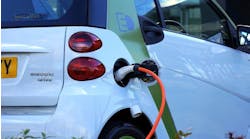June 3, 2021—While Tesla represents a large majority of the electric vehicles on the road today, the automaker is lagging behind in one piece of technology that is becoming increasingly important to consumers—mobile applications.
JD Power recently released its inaugural OEM EV App Benchmark study and found that Tesla’s app was ranked sixth amongst all EV mobile apps, citing a lack of updates and new features.
“When the app was launched it was new and modern, but they really haven't kept up with the technology that’s out there,” said Frank Hanley, senior director of global automotive consulting at J.D. Power.
While other apps like Kia Access and FordPass, both ranked above Tesla’s app, have incorporated new features like charging timers and advanced route planning, Tesla hasn’t. Tesla will show charging stations within the vehicle’s immediate vicinity, but if you’re going to drive 50 miles and need a charging station in that area, you can’t find one in the Tesla app, Hanley says.
Still, with Tesla’s stranglehold on the overall EV market, it is still the most used EV app. And despite the lack of technological updates, Tesla remains the clear leader in speed.
“When you do something on their app, it happens instantaneously,” Hanley said. “When you tell the car to lock, those doors lock within a second.”
To determine the overall ranking of the apps, JD Power obtained vehicles from each of the top 15 brands that sell EVs. From there they went through a 300-question questionnaire that assessed everything from how easy the app was to find in the app store and how quickly it paired to the vehicle to its actual features like remote start, access to diagnostic data and charging station information.
The top-performing apps were Kia Access, FordPass, Porsche Connect, myChevrolet and MyHyundai, with Tesla finishing sixth.
The need for manufacturers to prioritize an app specifically for EV owners will be increasingly pivotal. The JD Power study found that 41 percent of EV owners say they are using their brand’s smartphone app at least every other trip. That’s compared to just 19 percent of ICE owners who say they use their brand’s app more than half the time or every time they drive.
“When we look at why EV buyers are buying their vehicles, the fourth biggest reason after fuel economy, environmental factors and cheaper service is the tech factor,” Hanley said.
More than other industries, the manufacturer’s EV technology, including a mobile app, need to continually update to fit the needs of the consumer, he said.
But what are consumers looking for in an EV app? The study found the top requirements of an app were the ability to check the vehicle status (Are the doors locked? Windows closed? Lights off?), the ability to monitor the vehicle's charging status and the ability to check the availability of charging stations in range. An emerging technology that more and more consumers are looking for, Hanley said, is the ability to use their smartphone as a key.
“Over 80 percent of respondents said they had it or wanted it in the future, Hanley said.



